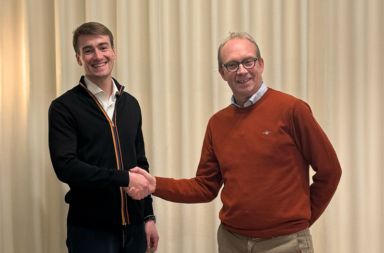The “Scaleup – Shapeup” workshop held the 28th of Nov at Minc the was an insightful event designed for founders and business leaders ready to grow their companies. Led by scale-up expert Thomas Ahrens, the session focused on breaking the habits that hold startups back from scaling and embracing strategies for sustainable growth.
Key Takeaways from the Workshop
- Delivering Value to Customers: Thomas emphasized the importance of consistently delivering value to customers rather than focusing solely on innovation. He explained that scaling companies need to align their entire organization to prioritize customer success and satisfaction.
- Building Systems for Growth: A standout analogy used by Thomas was the “Lego system.” He encouraged founders to build modular, adaptable systems that allow their businesses to grow without breaking under the pressure of new demands. Like Lego blocks, these systems should be easy to modify and expand.
- Transitioning from a One-Man Show: One of the most critical shifts discussed was moving from a “one-man show” to a team-oriented approach. Founders need to trust their team members and delegate responsibilities. Thomas introduced the “80% rule” the idea that a task doesn’t need to be perfect to be effective, as long as it gets the job done. This mindset allows leaders to focus on strategic goals instead of being caught up in day-to-day operations.
- The Importance of Focus and Saying No: Thomas highlighted how startups often try to chase every opportunity, which can lead to diluted efforts. He encouraged founders to say “no” to distractions, whether it’s a client who doesn’t align with their vision or a project that doesn’t contribute to long-term growth. Prioritization was key to scaling efficiently.
- Proactive Sales Strategies: In the early stages, startups often rely on a small group of loyal customers. While this works initially, Thomas explained that scaling requires proactive sales strategies and dedicated salespeople. Businesses must expand their customer base to reduce dependency on a few key clients and ensure consistent revenue.
- Rethinking Funding: Bootstrapping can work for startups, but scaling often demands sustainable funding. Thomas discussed strategies for finding the right financial support, emphasizing the need to balance funding with maintaining control over the company’s vision.
- Handling Difficult Customers: One particularly memorable point was the concept of “killing customers” not literally, but by raising prices or setting boundaries with clients who drain resources. Thomas emphasized that not all customers are worth keeping, especially if they hinder a company’s ability to grow.
- Avoiding the Firefighter Mindset: Many founders fall into the trap of constantly putting out fires instead of building systems to prevent problems. Thomas explained that this reactive approach can stifle growth. Instead, founders should focus on creating proactive solutions that allow their businesses to run smoothly.
- Leadership Evolution: Scaling requires a shift from being a “comfy cat” to a decisive, growth-oriented leader. Thomas pushed participants to step out of their comfort zones and take ownership of their role as leaders who inspire and guide their teams toward ambitious goals.
The session was a wake-up call for many, offering both clarity and motivation to embrace the challenges of scaling up.


